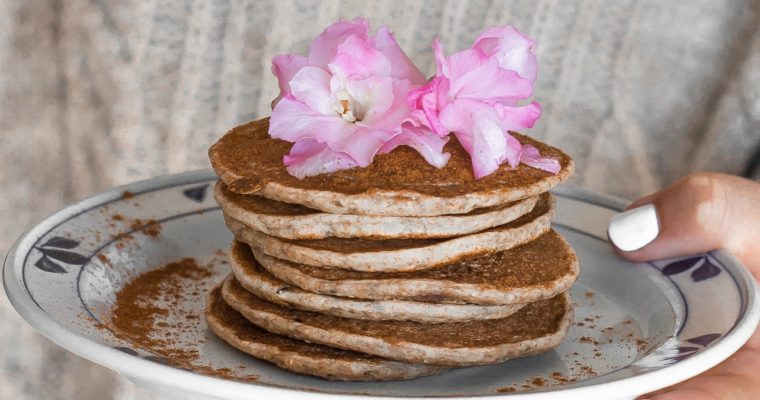While consuming certain types of dairy can still be considered a part of a healthy diet, removing conventional dairy from the diet can have wonderful benefits for some. Whether you’re interested in switching to a plant-based diet, cutting out dairy for health reasons or simply curious, this is the post for you! Let’s talk about the reasons why eating dairy-free might be right for you, the benefits and tips on where to start.
But first – what is considered a dairy product?
Dairy products primarily come from cow’s milk but some other types of dairy are often found from goat’s and sheep’s milk, amongst others. These products include food items such as yogurt, cheese and butter. It’s important to note that cow’s dairy varies from sheep & goat dairy, which is predominantly A2 dairy. A2 dairy seems to be easier to digest and enjoy for most people, as I’ve found in my nutrition practice.
Is dairy healthy or unhealthy?
Just like all foods, quality is the most important factor. When we consume quality dairy products (and have no intolerance to dairy), we are more likely to reap the benefits of them.
What is quality dairy?
- grass fed, pasture raised
- organic
- whole fat products
- little processing (shop from local farm markets vs. larger chains)
- raw milk (when and where available to you)
When we consume poor quality dairy products (mixed with a likely intolerance), we are more likely to run into issues such as:
- hormonal imbalance
- acne & skin issues
- digestive upset which leads to lack of mineral absorption
- and possibly more
However, I still see most of my clients thrive from reducing their overall dairy intake and do believe this still can be very beneficial for even those who don’t think they have an intolerance.
The nutrients we get from consuming quality dairy can be found in many different foods, so from a personal perspective, I do not think dairy is essential for optimum health. For example, collard greens and broccoli are packed with calcium and salmon and mushrooms are good sources of Vitamin D.
Is eating dairy free right for me?
After working with many different clients over the past 6 years, I can say that most of my clients benefit from removing conventional dairy products from their diet. However, this isn’t something I recommend to everyone! It’s important to address your personal nutrition needs, your relationship with food (would this be too restricting for you?) and other factors. I recommend working with a Holistic Nutritionist to see if eating dairy-free is right for you.
Did you know: close to 65% of the world’s entire population is lactose intolerant!?
Sisley’s favourite dairy-free recipes to make dairy-free eating easy
How to start eating dairy free
The most effective way for most people to avoid dairy products is to replace them with nutrient-dense non-dairy alternatives! Below is a list of ones I recommend:
Dairy-free milk: almond, coconut, cashew, non-GMO soy, hemp, oat
What to look for: unsweetened, organic, minimal / easy to pronounce ingredients such as “almonds, sea salt, water”, avoid guar gum, sugar and oil additives. For coffee drinkers, oat seems to be the fan favourite. For smoothies, coconut is nutritious and sweet. For a neutral taste, many people turn to organic soy or cashew.
Dairy-free yoghurt: coconut or almond milk-based
What to look for: unsweetened, organic, minimal / easy to pronounce ingredients such as “coconut milk, live cultures”, avoid guar gum, if sweetened look for natural fruit for sweetener such as “sweetened with pear or apple juice”.
Dairy-free butter: use olive oil, coconut oil or avocado oil for cooking, spread on toast, or use in baking
What to look for: cold-pressed, virgin coconut oil. I also love this dairy-free butter that tastes amazing but doesn’t compromise health! It’s super delicious on popcorn or spread on toast.
Dairy-free cheese: coconut cheese, cashew cheese, almond cheese, soy cheese
What to look for: avoid mock cheeses when possible as many contain unhealthy additives and oils – consume these only on occasion. For regular consumption, look for “artisanal cheese” made mostly from almonds, coconut or cashews. Many grocery stores, organic shops and some delis now carry artisanal cheeses, depending on where you live.
How to eat dairy-free at restaurants
This can be tricky, but since eating dairy-free is now more common than ever (hello dairy allergies and lactose intolerance), many restaurants and cafes will have menu options without dairy. Simply ask for dishes that don’t contain any milk, butter or cheese and ask for dressing on the side of salads if you aren’t sure.
If You Choose to Eat Dairy
If you do choose to eat dairy and feel it is right for you, it is important to look for the following:
- cow dairy coming from organic, pasture-raised cows
- choose grass-fed butter
- no added artificial sweeteners, sugars or additives (this is common in yoghurt and can be very harmful to our health)
- choose quality aged cheeses
- opt for goat’s milk products as they are less likely to be mass-farmed
These products may provide some nutritional support for some. Also – pizza is important for the soul :)
There are affiliate links used in this post. If purchased, I may earn a (very small) amount at no extra cost to you. Thank you for supporting everything we do at The Pure Life!
Sources Used and Notes:
It’s difficult to conclude from most studies whether or not dairy is beneficial or harmful to health. As I repeat in many of my posts & workshops – we are all unique individuals! This means dairy may or may not be right for you, there’s no one size fits all.
